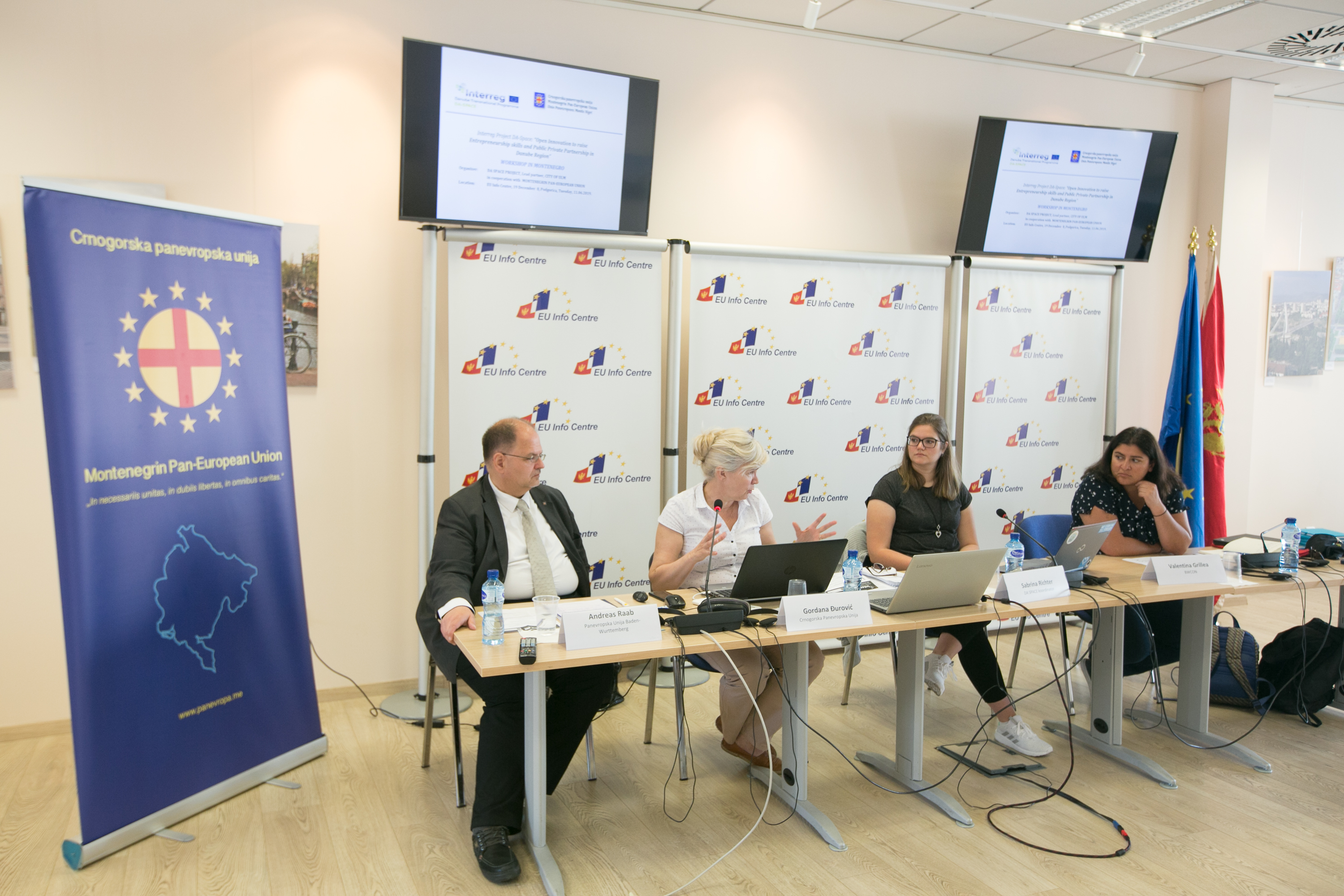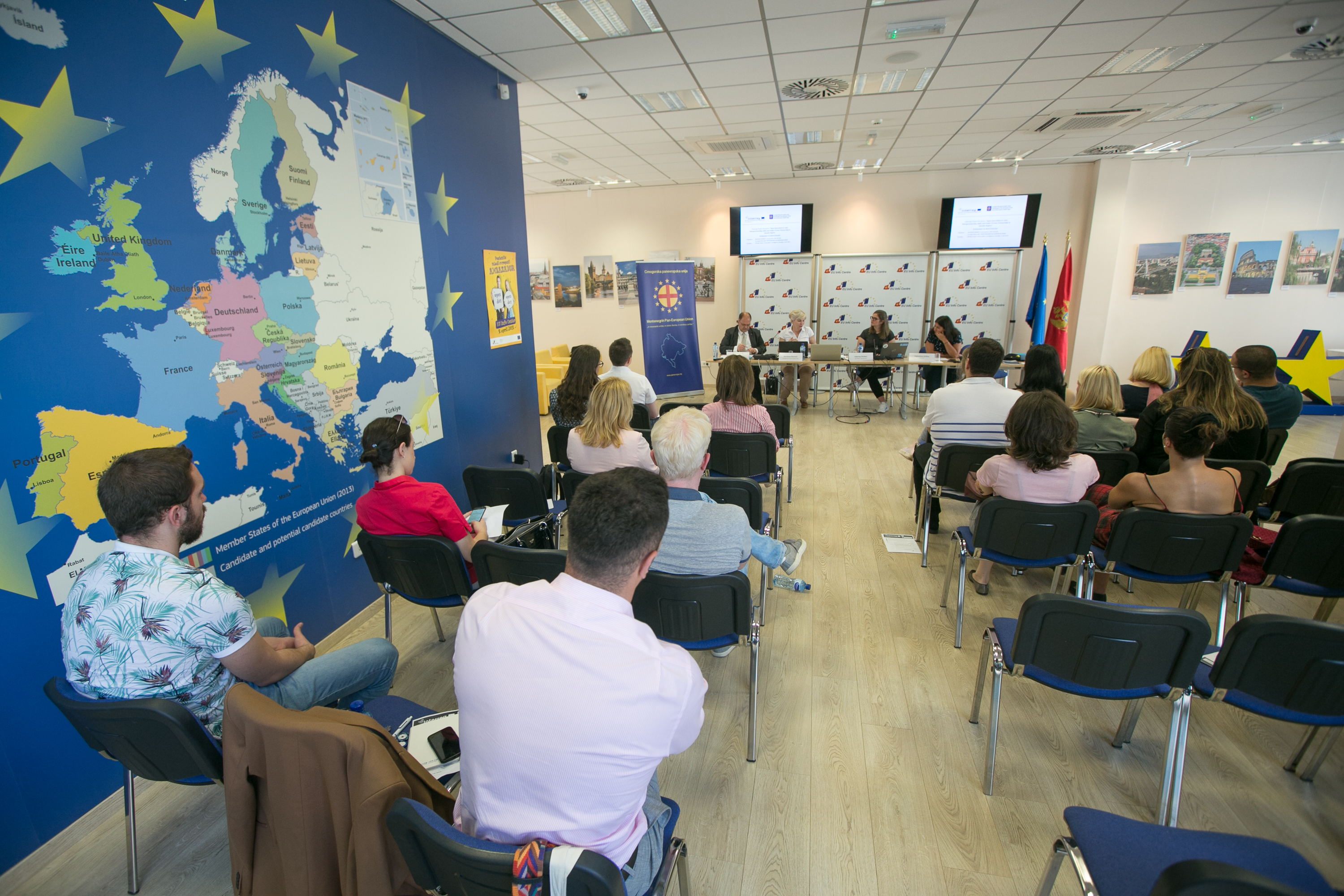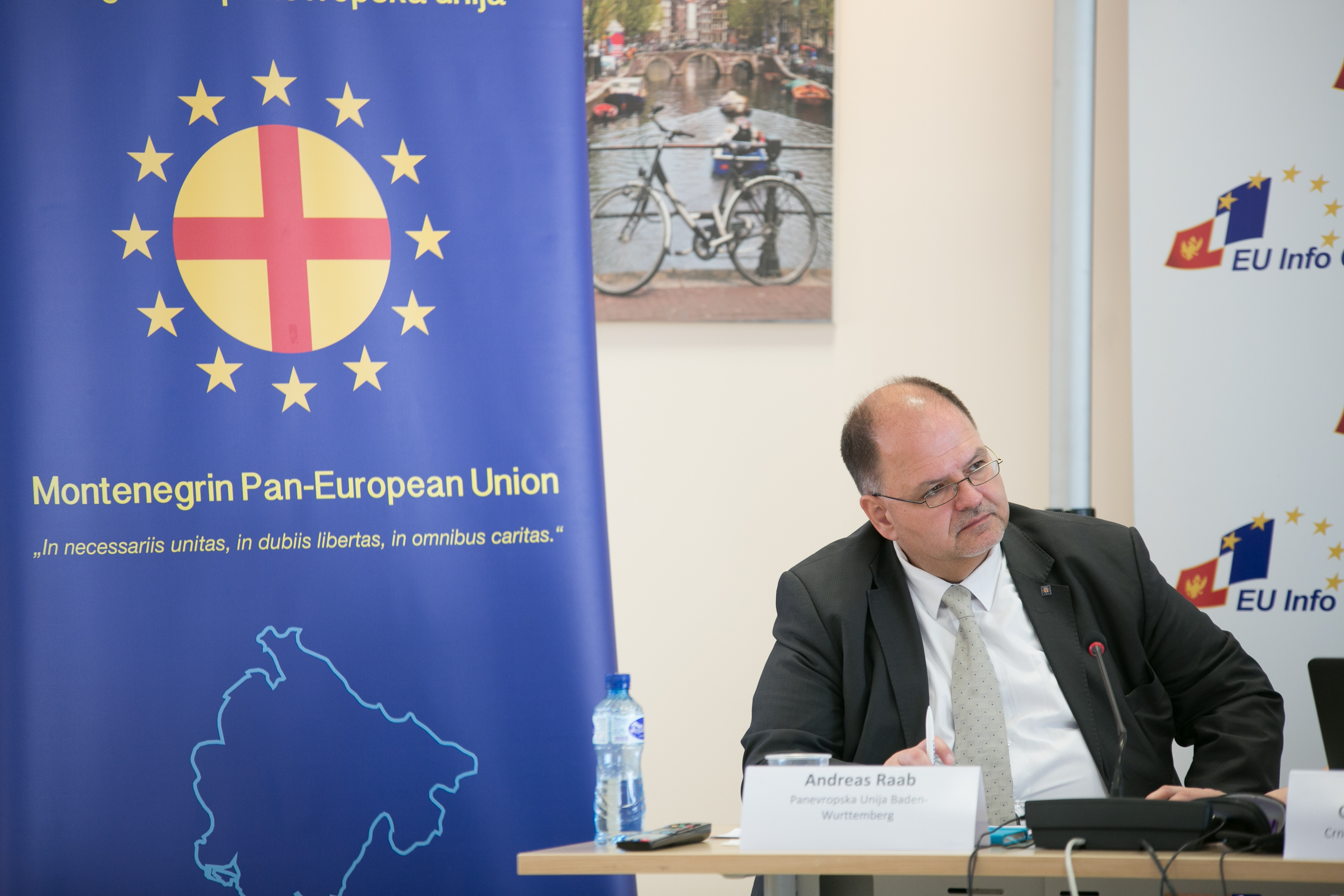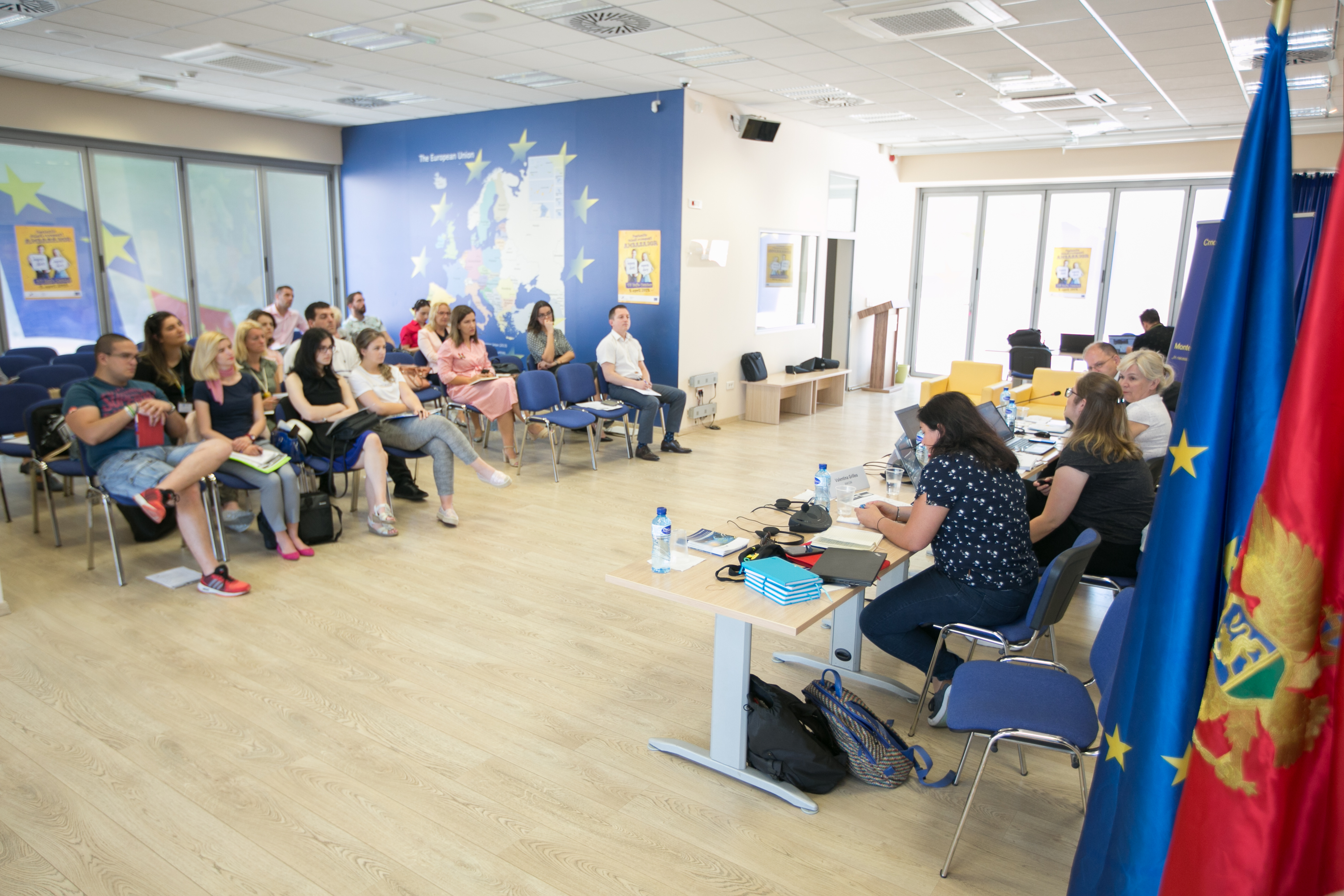DA-SPACE - TRANSFERABILITY WORKSHOP IN PODGORICA/ MONTENEGRO
23-06-2019
One of the last activities in DA-SPACE was a transferability workshop with partners from Montenegro. Montenegro is with only 650.000 inhabitants the smallest country of the Danube region, located between the Danube river Basin and the Adriatic littoral. Administration, trade and academia are concentrated in the capital Podgorica with more than 200.000 inhabitants, the economic most important sector is the tourism at the 295 km long Adriatic coast with more than 2 Mio visitors in 2017and the small industry is mainly located around the City of Niksic in the North-West of the country. Montenegro is since 2011 EU-candidate country and has started the accession negotiations in 2012.
The workshop was organised with the Pan European Union of Montenegro (CPEU) an NGO that advocates and supports the EU integration of their home country and has a special focus on the young generations. CPEU works in the frame of the Jean Monnet Program and of the Erasmus program. Because of her president, Professor Dr. Gordana Djurovic, the organisation has a high profile in the country. Professor Djurovic is the countries´ leading expert on EU integration and hold for more than eight years the position as Minister/Deputy Prime minister for European Affairs.
The workshop was hold on the 11th June 2019 in the Brussels - hall of the EU- Information Centre in Podgorica, which is open for all EU related projects.
Under the participants were members from the host organisation CPEU as well as students and postgraduates from the economic faculty of the University of Montenegro in Podgorica and representatives of the NGO-sector, the private economic sector, the chamber of commerce of Montenegro, the chamber of commerce of Podgorica, the touristic office of the City of Podgorica and the biggest institution for Development, Entrepreneurship and Start Ups in the country “Technopolis” in Niksic.
Professor Gordana Djurovic, CPEU, and Andreas Raab, Danube Office Ulm/Neu-Ulm gave an introduction, in which the status of the EU integration of Montenegro and the cooperation of the City of Ulm with Danube partners was described. Sabrina Richter, Digital Agenda/City of Ulm, and Valentina Grillea, BWCON, were presenting the DA-SPACE project, the partners and the idea of an open innovation lab.
The participants asked for concrete examples for the formulation of challenges by the young talents and how the solutions were found. They were also interested if the solutions were practical enough to be employed in the private or public sector. Modern training methods such as a hackathon are already used in the Montenegrian NGO-sector.
The representative of the touristic board Podgorica asked for DA-Space - challenges in partner regions, which were focusing on the touristic sector and was interested in the support of digital technology in tourism.
The representatives from the Chamber of Commerce described the experiences with trainings they organise to make their clients fit for Industry 4.0. Sabrina Richter underlined the importance of digital technologies in the future by describing the project “Zukunftsstadt” in Germany, which Ulm won for the digital sector.
The development agency Technopolis from Niksic reported about their training of digital skills of kids and high school students in a hub and their support for start-ups of young entrepreneurs.
For Technopolis DA-SPACE was presented in the right time to find interest because regional development agencies with similar competences than Technopolis are in the stage of opening in all regions of the country.
All participants were concerned about the brain drain in South East Europe and identified the idea of DA –SPACE – to raise the entrepreneur skills of young people - as a good instrument against that phenomenon.
More information about thePan European Union of Montenegro (CPEU) can be find under: http://panevropa.me/en/




